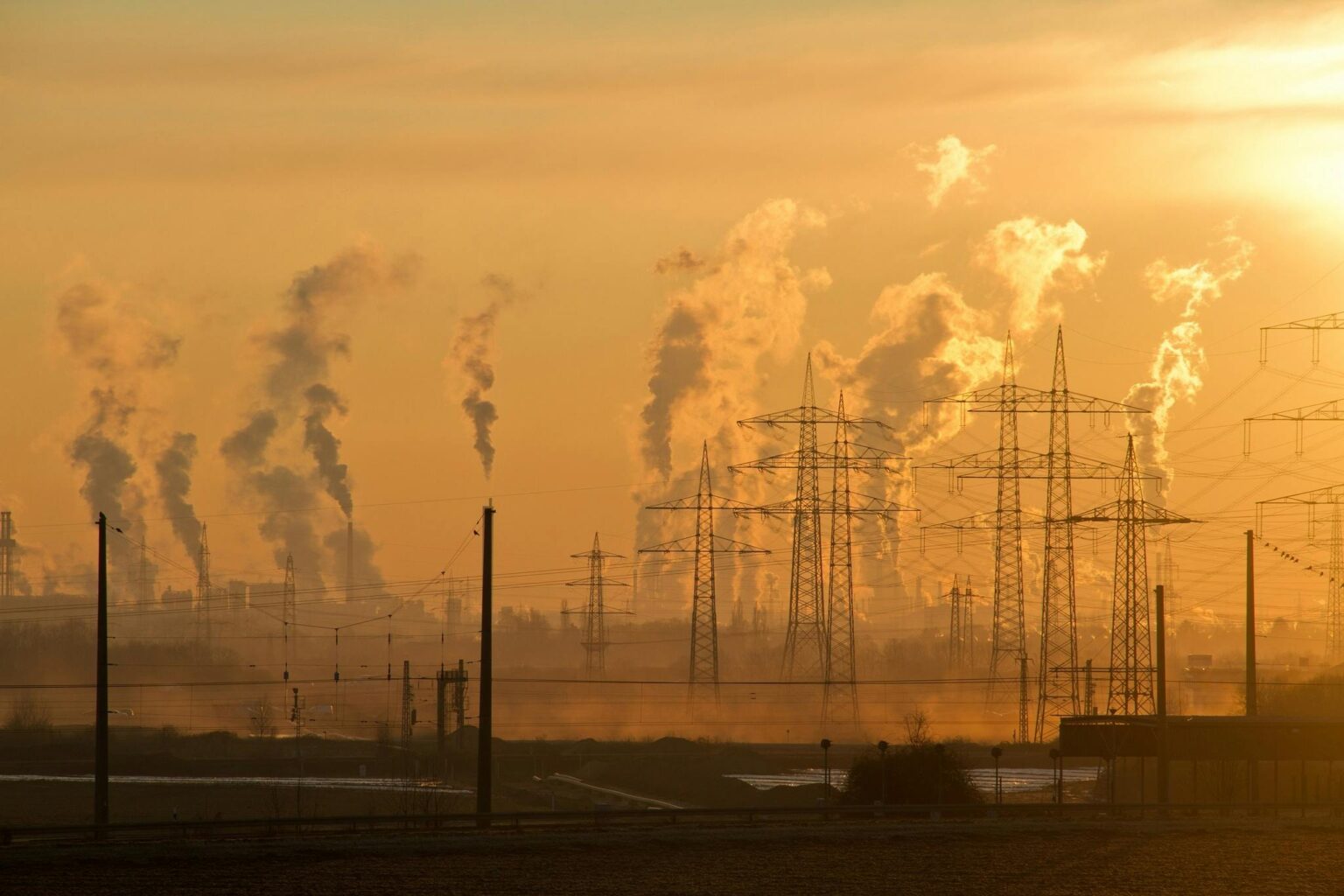When a corner of the internet comes to life, it always looks a bit different than you’d expect. It’s less snarky, less vitriolic, less apocalyptic. It’s decidedly more human. Sometimes, in fact, it’s downright pleasant, particularly when the place you encounter it is a pristine movie theater in the suburbs.
Earlier this week I traveled to the Angelika Film Center in Fairfax, Virginia, for the premiere of Climate the Movie: The Cold Truth, a new documentary film that promises to reveal the real story behind what the film calls “the climate scare” — in other words, the notion that human beings are changing the climate through our use of fossil fuels. Directed by climate denier filmmaker, Martin Durkin, the screening was organized by the CO2 Coalition, a nonprofit that promotes carbon dioxide as playing a “vital role . . . in our environment.” The Heartland Institute and Committee for a Constructive Tomorrow (CFACT) co-sponsored the event.
Despite the happy, bright green CO2 Coalition banners welcoming us to the screening, Climate the Movie was, much like the bleaker corners of the internet from which it seems to take inspiration, snarky, vitriolic, and apocalyptic. Over nearly 80 minutes — a good majority of which passed before a single woman appeared onscreen, except in stock footage — the attendees and I, scattered throughout a theater that was about a third full, were offered a window into today’s anti-climate playbook with all of its tensions and motivations.
One of the interesting (“interesting”) things about watching a Donald Trump speech is to observe the former president’s attempts to stay on message. He knows what he’s supposed to say — it’s usually written right there on the teleprompter — but you can tell that it’s taking all of his strength not to deviate into rambling, sometimes incoherent, asides. Eventually, though, the strain becomes too great, and he tosses out the script and tells the audience what’s really on his mind.
Climate the Movie follows a similar trajectory. The first half of the film is a relatively sober outline of two scientific-sounding arguments — that global temperatures aren’t actually increasing, and that carbon emissions aren’t either. And even if they were, we should be glad, because plants need carbon dioxide, and they’re hungry because, on a geologic time scale, “we’re in a CO2 famine,” as one interviewee puts it.
This part of the film is replete with graphs, data, and, above all, credentials. It feels like the filmmakers were desperate to portray people who dispute human-caused climate change as sensible, scientific, and driven only by the data. The film’s British narrator repeatedly cites and emphasizes the credentials of interviewees, like Nobel Prize-winning physicist John Clauser, a member of the CO2 Coalition’s board of directors who has declared “there is no real climate crisis.”
Update: Skeptical Science has flagged 25 myths spotted in the film.
A Savvy Approach
If the goal of Climate the Movie is to give viewers permission to deny that human activity is causing the planet’s climate to change, while still thinking of themselves as pro-science and pro-environment, it’s a savvy approach, and potentially an effective one. The scientists and experts who reject the “consensus” of climate change “are not flat earthers,” the narrator assures us, and it’s easy to see how some viewers might agree with him.
The second half of the film, however, is when, in the Trump-at-the-podium analogy, you see the script thrown out, the teleprompter ignored, and the snark and vitriol bubbling beneath the surface finally reach a boil. Here, Climate the Movie, which was released online on March 21, pivots from smoothly introducing doubt about climate science to bluntly concocting a grand, conspiratorial fallacy to explain why establishment elites have created this “climate scare.” Since the science proves there’s no climate emergency (see the first half of the film), and everyone knows it, why, the film asks, does this climate crisis narrative persist?
In short, what the film seems to be saying is: A long time ago Al Gore took an interest in climate change, which meant Congress gave federal agencies billions of dollars to spend on climate research. So now the only way scientists can get any funding at all is by saying they believe in and are studying climate change. And the only way the federal science agencies that fund these scientists can justify their existence is by pretending there’s a threat of climate change.
As a result, if scientists don’t get on “the climate bandwagon,” they lose funding and get canceled and excommunicated. And now, because all of the climate skeptics and deniers have been thoroughly marginalized and cast out by the so-called “censorious, authoritarian regime,” all that remains is a “consensus” that a climate crisis exists.
There’s more than a bit of projection going on here. After all, climate denial emerged as a powerful political force because it propped up the careers of right-wing politicians and the profits of corporate fossil fuel interests.
It’s perhaps not a coincidence that it’s at this point in the film that the oil and gas industry talking points emerge more explicitly. Why, the narrator asks, is the “environmental movement” so committed to their beliefs about climate change? Because they are the “sworn enemy of free-market industrial capitalism,” the film informs us. Climate change, in this telling, is a tool for the government to control the economy, reflecting the left’s “disdain for free-market capitalism” and its supposed disdain for working people.
Climate the Movie presents the argument that the “success of capitalism” upsets the liberal establishment because they don’t want the “masses” to have the same affordable goods and services that they enjoy. The elites would rather have people stay poor than provide them access to cheap fossil fuels or affordable plastic products — which, in this telling, are among the only ways to help people escape poverty. (In outlining its anti-poverty agenda the film makes no mention of strengthening the social safety net, say, or making the tax code more progressive.)
Yet the ultimate aim of Climate the Movie, it seems, is simply to troll the left. The narrator drew laughs from the audience when he claimed that real “workers” don’t attend climate protests because they’re too busy working. When the film showed footage of a climate protestor being pulled off a London Underground train and beaten, there was clapping throughout the theater.
One “rave review” tweeted out by Tom Nelson, the film’s producer, seemed to sum it up: “Was bowled away by your film: you took on and nailed every argument with clarity, precision and humour,” the review read in part. “You didn’t leave a crack for those libtards.”
As a climate crisis reporter, I assumed walking into the theater that I wasn’t the target audience of Climate the Movie. To me, the so-called scary world threatened by the film — one in which public policy is characterized by climate regulations, public support for climate action and adaptation, and higher taxes on the wealthy, on corporations, and in particular on the fossil fuel industry — sounds pretty great, and urgently necessary.
Whether seeking to lionize carbon emissions as environmental superfood or doing little more than trolling progressives, Climate the Movie represents a new interpretation of an old climate denial playbook that remains characterized by a determination to do whatever it takes to preserve the world’s dependence on fossil fuels.
Subscribe to our newsletter
Stay up to date with DeSmog news and alerts






